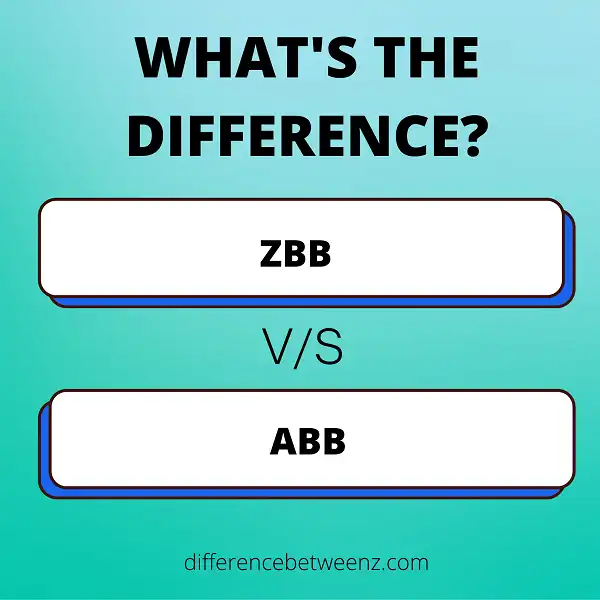There are two main types of budgeting techniques – zero-based budgeting (ZBB) and activity-based budgeting (ABB). Both have their own strengths and weaknesses, but which one is the best for your business? Let’s take a look at the differences between ZBB and ABB to help you make an informed decision.
What is ZBB?
ZBB is a budgeting method that starts from scratch. ZBB begins with a “zero base” and then adds costs for each function of the organization. This approach can be used for both short-term and long-term budgeting. ZBB can be especially helpful when an organization is facing financial challenges, as it forces managers to justify all expenses. The goal of ZBB is to eliminate waste and improve efficiency. While ZBB can be time-consuming, it can also lead to significant savings.
What is ABB?
ABB is an acronym for Activity-Based Budgeting. ABB is a system of budgeting that emphasizes the use of resources on activities that contribute to the organization’s strategic objectives. The ABB approach aims to create a budget that accurately reflects the true cost of activity by assigning costs to specific activities rather than to broad, general categories. This approach can be especially beneficial in organizations with complex operations or multiple product lines. By identifying and addressing the cost of specific activities, ABB can help organizations improve their overall efficiency and effectiveness.
Difference between ZBB and ABB
ZBB and ABB are two different methods of budgeting that can be used to manage finances. ZBB is a bottom-up approach that starts with zero and then allocates funds based on needs. This method can be more effective in organizations where there is a lot of waste and where it is difficult to track how money is being spent.ABB, on the other hand, is a top-down approach that starts with an overall budget and then allocates funds to specific activities.
This method can be more effective in organizations where there is a clear understanding of how money is being spent and where there is less waste.ABB can also be more flexible, as it allows for more easily cut back on certain activities if necessary. ZBB can be more rigid, making it more difficult to make adjustments mid-year. Ultimately, the choice of which budgeting method to use depends on the organization’s specific needs.
Conclusion
In the business world, there are two main types of budgeting: zero-based budgeting (ZBB) and activity-based budgeting (ABB). While both have their pros and cons, ZBB is often seen as being more advantageous for businesses. Let’s take a closer look at the differences between these two methods of budgeting. With ABB, costs are based on past activities rather than future plans. This can lead to inflated budgets if not monitored closely, as well as inefficiencies due to unnecessary workarounds. On the other hand, ZBB starts with a clean slate each year, ensuring that every dollar spent is justified.


